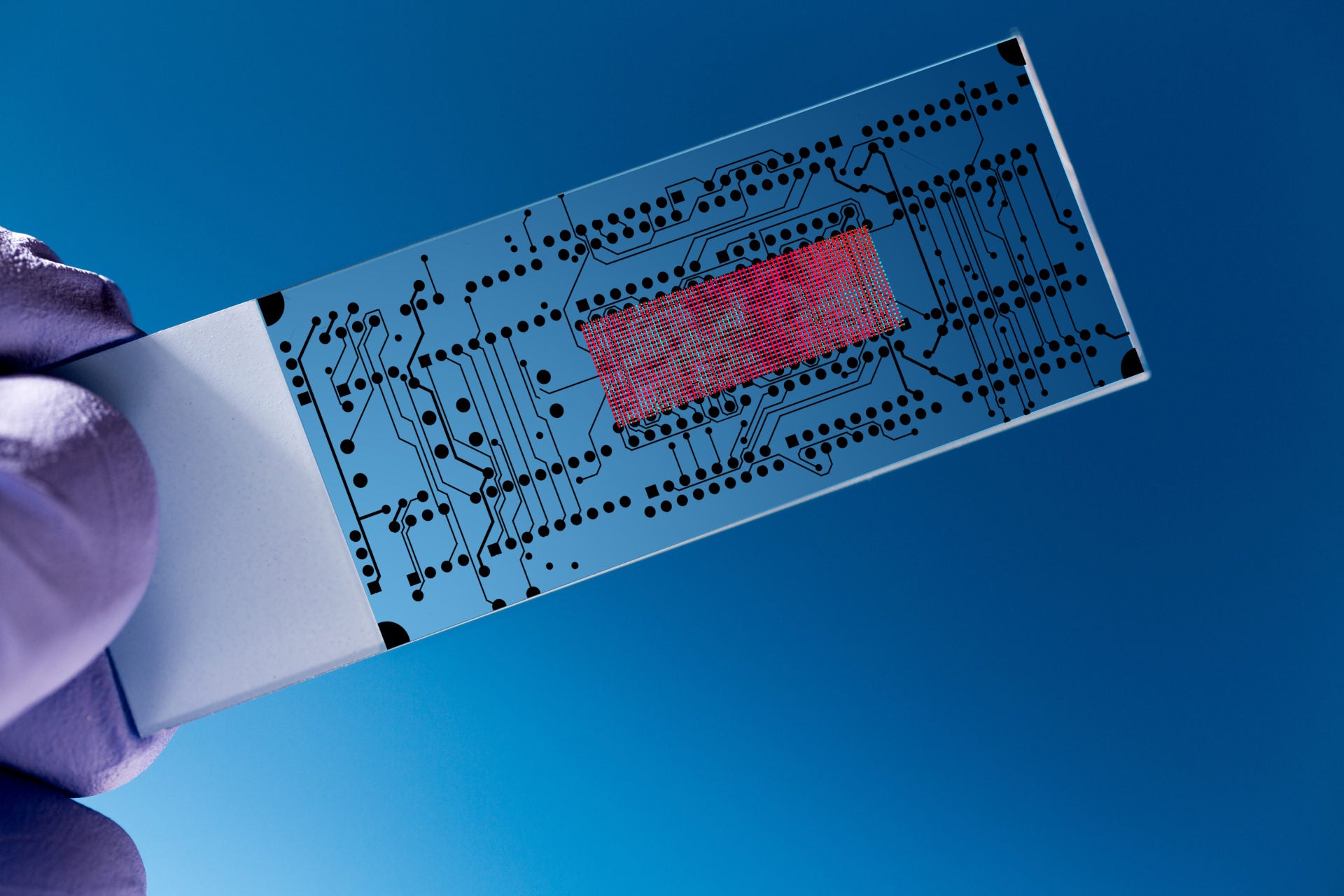
A new diagnostic device is designed to allow doctors to detect cancer from a drop of blood or plasma, which could lead to earlier diagnosis.
Developed by The University of Kansas Cancer Center and KU Medical Center, the device uses lab-on-a-chip technology, which works by detecting exosomes, cell-derived vesicles produced by tumour cells to stimulate their growth.
Lab-on-a-chip refers to a device that performs several laboratory functions on a single integrated circuit. As they are so small, they are extremely cost-effective to produce, as well as taking up very little space, making them a key piece of technology for the future of diagnostics and other areas.
The lab-on-a-chip allows quicker diagnosis than traditional methods, making timelier interventions and better outcomes for patients possible.Lead author of the study Yong Zeng, Docking Family Scholar and associate professor of chemistry at KU explains how the technique works:
“Historically, people thought exosomes were like ‘trash bags’ that cells could use to dump unwanted cellular contents. But in the past decade, scientists realized they were quite useful for sending messages to recipient cells and communicating molecular information important in many biological functions. Basically, tumours send out exosomes packaging active molecules that mirror the biological features of the parental cells. While all cells produce exosomes, tumour cells are really active compared to normal cells.”
Lab-on-a-chip design breakthrough
Another significant breakthrough is in the design of the chip itself. It incorporates a 3D nanoengineering method that mixes and senses biological elements based on a herringbone pattern commonly found in nature, pushing exosomes into contact with the chip’s sensing surface much more efficiently in a process called “mass transfer”. This makes it quicker and easier to analyse the cells.
How well do you really know your competitors?
Access the most comprehensive Company Profiles on the market, powered by GlobalData. Save hours of research. Gain competitive edge.

Thank you!
Your download email will arrive shortly
Not ready to buy yet? Download a free sample
We are confident about the unique quality of our Company Profiles. However, we want you to make the most beneficial decision for your business, so we offer a free sample that you can download by submitting the below form
By GlobalDataResearchers tested the chip’s design using clinical samples from ovarian cancer patients, and found that the chip could detect the presence of cancer even from a minuscule amount of plasma. This type of cancer has historically had a low detection rate, meaning breakthroughs in diagnostics are significant.
Zeng explains how the chip could be used to detect other diseases:
“Now, we’re looking at cell-culture models, animal models, and also clinical patient samples, so we are truly doing some translational research to move the device from the lab setting to more clinical applications. Almost all mammalian cells release exosomes, so the application is not just limited to ovarian cancer or any one type of cancer. We’re working with people to look at neurodegenerative diseases, breast and colorectal cancers, for example.”




